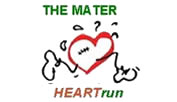PERCEPTIONS AND VIEWS OF REGULATORY PHARMACISTS ON THE REGISTRATION SYSTEM FOR GENERIC DRUGS FOR HUMAN USE IN KENYA
Abstract
Background: Generic drugs play an important role in the delivery of healthcare services
in Kenya because of their affordability and availability. The Pharmacy and Poisons Board (PPB) is the body mandated to regulate the manufacture and supply of all drugs in Kenya. Approximately 90% of all applications for registration of drugs in Kenya are for generic drugs; however, there are concerns about the quality of generic drugs supplied to patients in Kenya.
Objective: The study aimed to investigate the perceptions and views of the regulatory pharmacists on the registration system for generic drugs in Kenya, and the role of the National Quality Control Laboratory (NQCL).
Design: A cross-sectional survey was designed to collect the views and perceptions of regulatory pharmacists on the system for the registration of generic drugs for human use in Kenya.
Setting: The survey was conducted in the capital city of Kenya, Nairobi from January to February 2007. Nairobi was selected because it has a high concentration of pharmaceutical manufacturers and distributors involved in drug registration.
Participants: The sample included regulatory pharmacists working in the registration departments of pharmaceutical companies dealing in generic drugs for human use.
A sample of 40 participants was recruited for the survey and a response rate of 60%
was targeted.
Results: Over half (55.6%) of the respondents reported satisfaction with the drug registration system while 33.3% were unsatisfied. The level of satisfaction did not seem to be associated with the length of time it takes to register a generic drug (p-value=0.74)
or the gender of the respondent (p-value=0.94). The respondents had confidence in the analytical procedures carried out by NQCL but were less satisfied with its role in generic drug registration process. The respondents made a number of recommendations towards better drug registration mechanisms for generic drugs in Kenya.
Conclusion: The study suggests that although the drug registration procedures appear to be working, there is need for improvement. One area in which the registration of
generic drugs in Kenya can benefit is in the observation of the operation of what other countries have done to streamline their drug registration systems.
in Kenya because of their affordability and availability. The Pharmacy and Poisons Board (PPB) is the body mandated to regulate the manufacture and supply of all drugs in Kenya. Approximately 90% of all applications for registration of drugs in Kenya are for generic drugs; however, there are concerns about the quality of generic drugs supplied to patients in Kenya.
Objective: The study aimed to investigate the perceptions and views of the regulatory pharmacists on the registration system for generic drugs in Kenya, and the role of the National Quality Control Laboratory (NQCL).
Design: A cross-sectional survey was designed to collect the views and perceptions of regulatory pharmacists on the system for the registration of generic drugs for human use in Kenya.
Setting: The survey was conducted in the capital city of Kenya, Nairobi from January to February 2007. Nairobi was selected because it has a high concentration of pharmaceutical manufacturers and distributors involved in drug registration.
Participants: The sample included regulatory pharmacists working in the registration departments of pharmaceutical companies dealing in generic drugs for human use.
A sample of 40 participants was recruited for the survey and a response rate of 60%
was targeted.
Results: Over half (55.6%) of the respondents reported satisfaction with the drug registration system while 33.3% were unsatisfied. The level of satisfaction did not seem to be associated with the length of time it takes to register a generic drug (p-value=0.74)
or the gender of the respondent (p-value=0.94). The respondents had confidence in the analytical procedures carried out by NQCL but were less satisfied with its role in generic drug registration process. The respondents made a number of recommendations towards better drug registration mechanisms for generic drugs in Kenya.
Conclusion: The study suggests that although the drug registration procedures appear to be working, there is need for improvement. One area in which the registration of
generic drugs in Kenya can benefit is in the observation of the operation of what other countries have done to streamline their drug registration systems.
Refbacks
- There are currently no refbacks.


